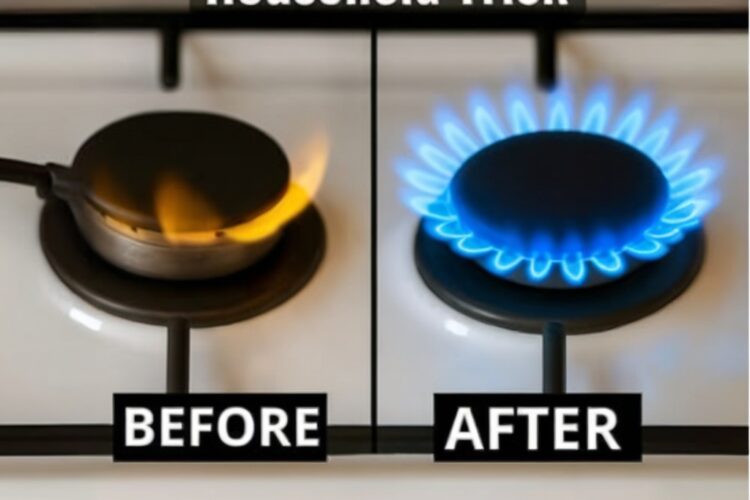How to Unclog Stove Nozzles & Strengthen Your Flame
A Simple, Effective Homemade Solution
If your gas stove flame is weak, yellow, or flickering, it’s often due to clogged nozzles. Cleaning them is quick, inexpensive, and restores a strong, blue flame for faster and safer cooking.
Why It Happens
Over time, grease, food particles, and dust build up inside the gas ports. This:
- Restricts gas flow
- Causes uneven heating
- Increases gas usage
- Can lead to carbon monoxide risks
Why a Strong Flame Matters
A healthy flame is mostly blue with just a hint of yellow at the tip.
A weak or yellow flame means incomplete combustion, poor cooking performance, and potential safety hazards.
Equipment & Supplies Needed
- Liquid aluminum cleaner or mild metal-safe degreaser
- Wooden stick, bamboo skewer, or toothpick (avoid metal tools)
- Soft cloth or toilet paper
- Small brush (old toothbrush works great, optional)
- Safety gloves (recommended)
- Paper towels
- White vinegar & water (for a natural cleaner alternative)
👩🍳 Step-by-Step Cleaning Guide
-
Turn Off & Cool Down
- Switch off the stove.
- Disconnect gas supply if possible.
- Let burners cool completely.
-
Remove Burner Grates & Caps
- Lift off metal grates and burner caps.
- Carefully remove the nozzles (small metal parts under the grates).
-
Apply Cleaner
- Place nozzles on a paper towel.
- Pour liquid aluminum cleaner over them, ensuring gas ports are submerged.
- Let soak for 5–10 minutes to dissolve grease.
- Alternative: Mix equal parts white vinegar & water for a natural option.
-
Clear the Gas Ports
- Use a wooden stick or toothpick to gently clear debris.
- Avoid metal tools — they can damage the nozzles.
-
Wipe & Dry
- Use a soft cloth or paper towel to remove loosened debris.
- Brush stubborn spots gently with a toothbrush dipped in cleaner.
- Allow to air dry completely.
-
Reassemble & Test
- Place nozzles and caps back.
- Reconnect gas supply.
- Light the stove — flame should be strong, steady, and blue.
Pro Tips for Best Results
- Clean every 2–3 months for optimal performance.
- Wipe spills immediately to prevent buildup.
- Avoid abrasive cleaners that scratch metal.
- Maintain proper ventilation to reduce grease accumulation.
When to Call a Professional
If the flame is still weak after cleaning, there may be:
- Damage to the nozzles
- Gas line blockage
- Regulator issues
Contact a certified gas technician for safety.
Final Takeaway
With just a few household items and 15 minutes, you can restore your stove’s performance, save on gas, and make cooking faster and safer. A clean nozzle means a strong flame — and better meals every time.
